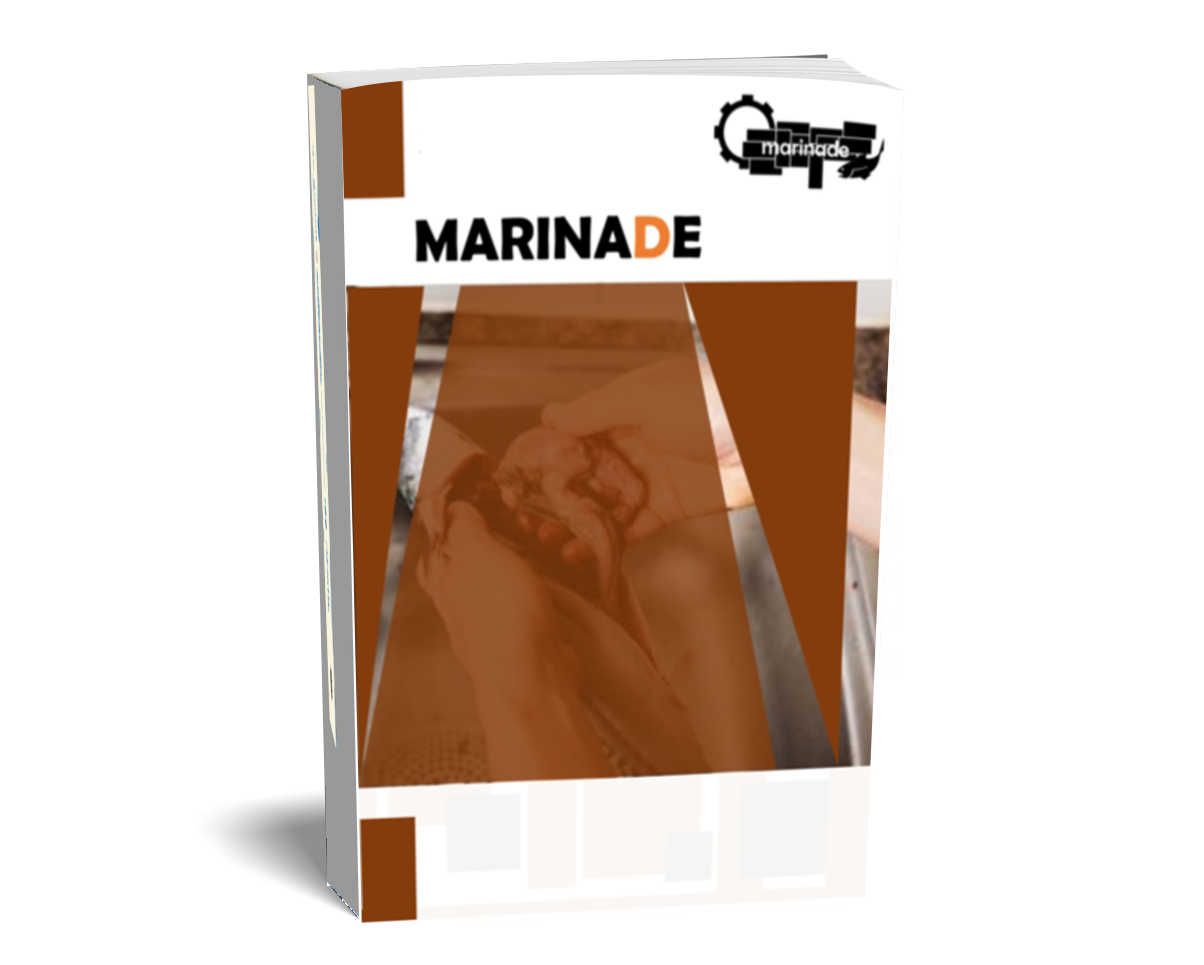LAJU KEMUNDURAN MUTU GONGGONG (Strombus sp.) SEGAR PADA PENYIMPANAN SUHU CHILLING DAN RUANG DENGAN MUTU SENSORI
DOI:
https://doi.org/10.31629/marinade.v3i02.3406Keywords:
chilling, rate of decline quality, Strombus sp., sensory qualityAbstract
The purpose of this research was to analyzed the rate of the quality of fresh gonggong snail (Strombus sp.) stored at chilling and space temperature within 24 hours. The research method used consisted of morphometric test, yield test and sensory test with characteristics of appearance, texture and smell of gonggong snails. The results of the study based on observations of deterioration in quality of fresh gonggong snails (Strombus sp.) can be seen from the morphometric observations of gonggong, namely obtaining an average total weight of 23.36 ggonggong, 5.98 g length, and 3.6 g width. Based on the results, the yield of shell research was the largest portion at 60.77%, the meat yield was 21.25%, while offal was the smallest part, which was 15.83%. Observations on the sensory test at chilling temperature using a temperature of 5ºC were carried out for 4 hours 1 time observation with the characteristics of appearance, texture and smell making the sample not too fast to experience the process of decay and change in the sample. While the sensory test observations at room temperature are carried out for 24 hours. 1 time the observation of the quality deterioration process occurs very quickly because storage at room temperature can accelerate the deterioration of quality due to bacterial overhaul occurs very quickly.
Downloads
Downloads
Published
Issue
Section
License
You are free to:
- Share — copy and redistribute the material in any medium or format for any purpose, even commercially.
- Adapt — remix, transform, and build upon the material for any purpose, even commercially.
- The licensor cannot revoke these freedoms as long as you follow the license terms.
Under the following terms:
- Attribution — You must give appropriate credit, provide a link to the license, and indicate if changes were made . You may do so in any reasonable manner, but not in any way that suggests the licensor endorses you or your use.
- ShareAlike — If you remix, transform, or build upon the material, you must distribute your contributions under the same license as the original.
- No additional restrictions — You may not apply legal terms or technological measures that legally restrict others from doing anything the license permits.













